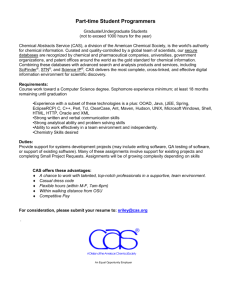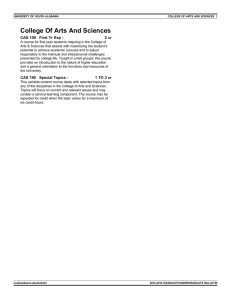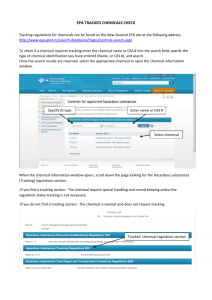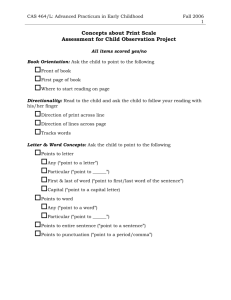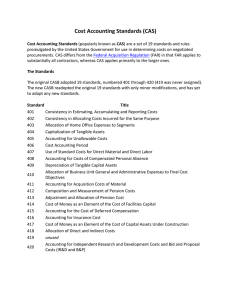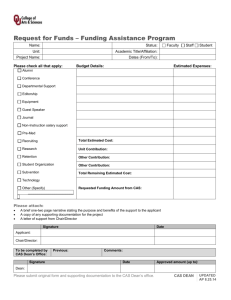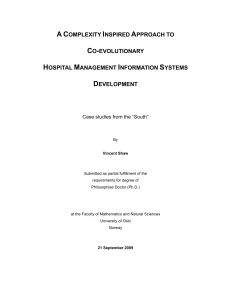Judge Business School
advertisement
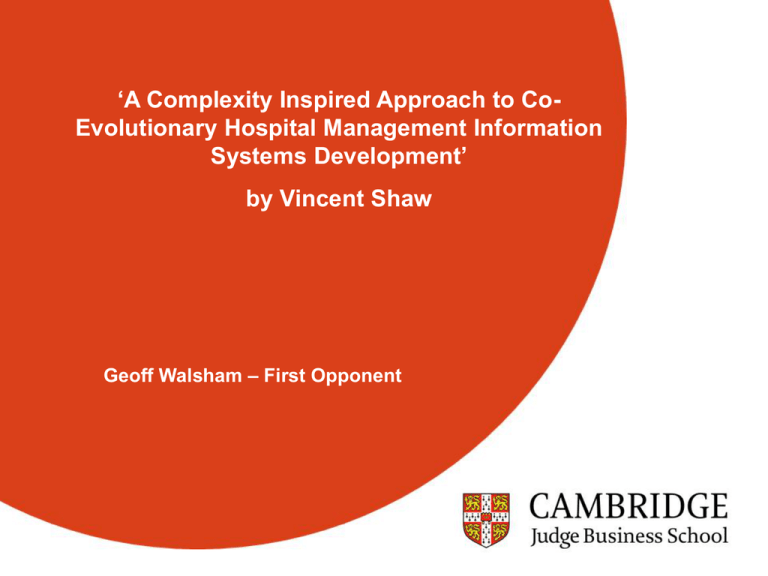
‘A Complexity Inspired Approach to CoEvolutionary Hospital Management Information Systems Development’ Judge Business School by Vincent Shaw Geoff Walsham – First Opponent Strengths of the thesis Valuable exploration of hospital MIS in resource constrained environments Based on rich field data from a variety of African countries Adopts an interesting theoretical stance of a complex adaptive systems (CAS) perspective Seven papers of good quality, becoming more sophisticated over time Page 2 Some broad contributions Context is one of ‘extreme’ heterogeneity Need for flexibility in both technical design and the implementation process Technical: flexible components, modular design Implementation: self-organising groups which cross boundaries; synergistic partnerships between public sector organisations (e.g. hospitals) and NGOs (e.g. HISP-SA) Page 3 More specific contributions Process of co-evolutionary development whereby agents (human and non-human) change and adapt together ‘at the edge of chaos’ PAN model - Process of Accommodating Non-Linearity: data management; technical resources; human resources Mindful innovation: preoccupation with the possibility of failure, commitment to resilience, sensitivity to operations Flexible standards, sustainability, scalability, gateways, attractors … Hard sometimes to see the wood for the trees and a bit repetitive at times Page 4 My questions Choice of CAS as a theoretical framework Methodological issues Culture, power and politics Human capacity development Reflexivity? Page 5 Choice of CAS as a theoretical framework Why choose CAS rather than ANT for example? Weaknesses of CAS? Page 6 Methodological issues You claim to be using an interpretive stance but …. ‘Data and interpretations have been triangulated by moving between the micro- and macro-levels …’ (p85 – italics added) And ‘in order to ensure my interpretations are valid …’ (p85 – italics added) Page 7 Culture, power and politics They often seem absent. Why? e.g. ‘We need to move away from a culture of reporting to a culture of using the data for ourselves’ (Byskov and Olsen in response to Paper 2, p639) How do we do this? How does complexity theory help? Is ‘training’ adequate? Page 8 Power and politics - example e.g. ‘a co-evolutionary process between an NGO and a public sector organisation is potentially a relationship which allows the strengths of each organisation to complement one another’ (pp137-8) Possibly! What about tension, disagreement, conflict ….? Page 9 Human capacity development I agree it is crucial but it seems to arrive relatively ‘late in the day’. Why? Health information practitioner (HIP) – interesting concept but not welldeveloped: recruitment, incentives, career structure … And only one element in efforts to shift towards a culture of ‘information for action’ How do we shift the attitudes and capabilities of all the stakeholder groups: doctors, nurses, other health workers, managers …? Page 10 Reflexivity ‘I conclude with a quote from Suchman (1987, p. v11) on plans and situated action which, in my view, provides an invaluable insight into the approach which is necessary for sustainable HospMISD in resource constrained settings: (italics added) “The Trukese navigator begins with an objective rather than a plan. He sets off toward the objective and responds to conditions as they arise in an ad hoc fashion. He utilizes information provided by the wind, the waves, the tide and current, the fauna, the stars, the clouds, the sound of water on the side of the boat, and he steers accordingly. His effort is directed to doing whatever is necessary to reach the objective. If asked, he can point to his objective at any moment, but he cannot describe the course.” (p161) Or a description of yourself and your PhD journey? Page 11

